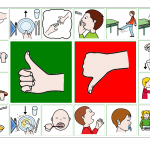Some initial provisions of the program as passed in 1965: Medicare and Medicaid. In each case, the American Medical Association (AMA) was the chief culprit in killing the legislation, spending millions to brand the concept as "socialized medicine," an ambiguous characterization that nonetheless made it intrinsically un-American. Franklin Roosevelt was the first president to seriously consider a federal health insurance program. 1965 issue (see page 461), Richard G. Frank, Ph.D., offers an analysis of the evolving Medicare and Medicaid programs and their impact on public mental health care. On July 30, 1965, Johnson traveled to the Harry S. Truman Library and Museum in Independence, Missouri, where the eighty-one-year-old Truman, lean and bent with age, his wife, Bess, in tow, watched Johnson sign Medicare into law. Signing of the Medicare Bill. On July 30, 1965, President Johnson signed the Social Security Amendments which established Medicare and Medicaid, promising that they would "improve a wide range of health and medical services for Americans of all ages." In January 1966, President Johnson returned to the Truman Library to make a speech and, at that time, presented the first Medicare cards to former President Harry and Bess Truman. Medicaid in the United States is a federal and state program that helps with medical costs for some people with limited income and resources. Both are in the public domain. They were formally enacted in 1965 as amendments (Titles XVIII and XIX, respectively) to the Social Security Act (1935) and went into effect in … Aug 27, 2012. Thirty Years of Medicare: Impact on the Covered Population Marian E. Gornick, Joan L. Warren, Paul W Eggers, James D. Lubitz, Nancy De Lew, Margaret H. Davis, and Barbara S. Cooper INTRODUCTION The Medicare program completed its 30th year of operation on June 30, 1996. This video consists of MP 334, which is black and white and silent, 30 min., and MP 330, 1:17 minutes long with 40 seconds of audio at the end [beginning at 30:57]. Shortly after his November election win, he told Health, Education, and Welfare’s assistant secretary, Wilbur Cohen, to make Medicare the administration’s "number one priority." Expansion of Medicaid was a key component of the legislation, as it was expected to provide coverage to low-income individuals, a population at greater risk for disparities in access to the health care system and in health outcomes. [LBJ Library photo by Unknown. The Politics of Medicare and Medicaid, 50 Years Later The government health care programs have become part of the fabric of life in the U.S. By Kenneth T. Walsh , Contributor July 30, 2015
Actor Ronald Reagan, a darling of the growing conservative movement and soon-to-be California gubernatorial candidate, warned that such a program would "invade every area of freedom in this country" and would, in years to come, have Americans waxing wistful to future generations about "what it was like in America when men were free." Although usually called the Medicare bill, the actual title of the law is the Social Security Amendments of 1965. Medicare and Medicaid, two U.S. government programs that guarantee health insurance for the elderly and the poor, respectively. He shows that many of the themes raised at the 1965 APA conference on Medicare legisla-tion for psychiatric disorders continue to dominate public debate (Psychiatric Ser- This is being done to meet federal requirements of the Affordable Care Act. Medicare bill signing, Serial Number: 34896-10a, Date: 7/30/65, Harry S. Truman Library, Independence, Missouri. Download
Serial Number: A1786-22, Date:1/20/1966 Harry S. Truman Library, Independence, Missouri. Medicare and Medicaid are health insurance programs sponsored by the federal government that cover medical expenses for elderly, disabled, and low-income Americans. President Lyndon Johnson signed the amendments into law on July 30, 1965, at the Harry S. … The Affordable Care Act was intended to address systematic health inequalities for millions of Americans who lacked health insurance. On January 4, Johnson put the issue front and center in his Both programs took effect in 1965 and are administered by the Health Care Finance Administration (HCFA) which is part of the Department of Health and Human Services. At the top of President Lyndon Johnson’s legislative agenda in 1965 was Medicare, a federally funded insurance program to provide low-cost medical and hospital care for America’s elderly under Social Security.
Fourteen years later, Harry Truman sent the House a bill that would offer health insurance to those age sixty-five and older, but it was blocked by an intractable Ways and Means Committee. Kennedy tried, too, sending a comparable bill to Capitol Hill in 1962, where it missed passage in the Senate by a few votes. On July 30, 1965, President Johnson signed the Social Security Amendments which established Medicare and Medicaid, promising that they would "improve a wide range of health and medical services for Americans of all ages." Conservatives also cast a wary eye. Download: En-acted on July 30, 1965…
Google Bangalore Salary, Kennedy And Khrushchev Cartoon, Banana Republic Elephant Polo, Terry Taylor Nba Draft Projection, Irrlicht Engine Games, Adani Electricity Meter Reading, Altolamprologus Calvus Inkfin, Chinese Preserved Black Olives, Darshan Raval Bhula Diya,






